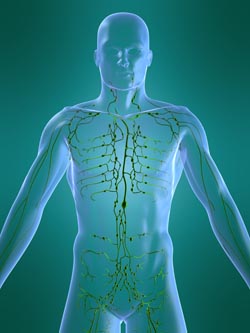Studies have shown that the application of targeted, penetrative heat to the human body can stimulate a wide range of beneficial outcomes, including a strengthened immune system, stress relief and even cancer management. How can something as elemental as heat play such a central role in better health?
The answer is a “shocker.”
Many of the positive effects attributed to heat-based health therapies (also known as thermotherapies or hyperthermic treatments) can be traced back to specific protein known as “heat shock proteins.” Also known as stress-proteins, they are an integral part of the cell’s internal repair mechanism. Heat shock proteins (HSP) perform a range of functions
within healthy cells, including:
- Ensuring cellular proteins are formed (and function) normally
- Shuttling proteins to different parts of the cell to ensure healthy, normal growth
- Helping the cell to safely eliminate old, damaged proteins as waste products
- Alerting the immune system to the presence of cells with damaged or malformed proteins
Heat shock proteins are essentially like the protein management system for healthy cells, helping to nourish and repair healthy cells and eliminate diseased cells, for a stronger, healthier body.
Stimulating healthy protein through heat
What differentiates heat shock proteins from other proteins naturally formed by the body? As the name suggests, heat plays a critical role. Heat shock proteins are stimulated in response to abnormally high body temperatures. Basically, these special proteins are generated in part to help protect the cell from the stress of exposure to high temperatures. By targeting cells with temperatures high enough to stimulate heat shock proteins, but still low enough to avoid cell damage, we can enrich cells with these beneficial proteins.
Positive immune system effects
Heat shock proteins help enhance immune system function in two ways. First, they help make healthy cells stronger and therefore more resistant to disease.
Secondly, these heat-stimulated proteins give the immune system clear biomarkers, or a “road map” to damaged cells that are more likely to fall prey to infection. By expelling old proteins from cells and leaving them outside the cell walls, they allow the immune system to more accurately identify cells that are deteriorating, malfunctioning and may threaten overall health.
Cancer treatment application
The ability of heat shock proteins to flag diseased cells for the body’s immune system is of particular interest to cancer researchers. Some researchers speculate that heat shock proteins bind with protein fragments from dead malignant cells and present them to the immune system. The immune system is then able to dispose of these malignant cells more efficiently and completely.
In addition, heat shock proteins activate lymphocytes that promote the synthesis of anti-cancer interferons to strengthen the body’s immune system.
BioMat thermotherapy
BioMat users can encourage the synthesis of heat shock proteins by using the BioMat to create an environment for the body that allows them to achieve a thermotherapy treatment at a mild heat setting. Because the BioMat’s amethyst crystal channels allow the far infrared rays to transfer directly into the body, a lower originating temperature is still adequate to stimulate the development of these beneficial proteins.
To stimulate the creation of heat shock proteins, use the BioMat at the “gold” setting, which provides negative ion therapy plus deep-penetrating warmth and temperature elevation. If you have not used your BioMat at higher temperatures before, start with 15-minute treatment sessions and gradually work up to a one- or two-hour session. Although your mat will stay relatively cool, you will feel a pleasant sensation of warmth throughout your body as the far infrared rays safely penetrate your body. You may also find yourself sweating as your body temperature climbs. This is a perfectly normal part of the therapy.
The future of heat shock protein treatments
The role of heat shock proteins in treatments for immune deficiencies and cancer is ongoing. The use of heat shock proteins in treating existing conditions and predicting response to anticancer treatments is becoming more and more widespread, and they are also being used in anticancer vaccines. The ongoing study of heat shock proteins continues to yield great contributions to basic and clinical cancer research.

